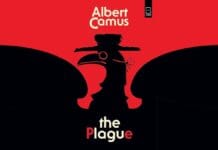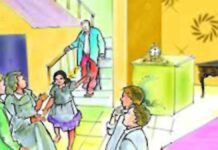A preposition is a word or group of words used before a noun, pronoun or noun phrase to show direction, time, place, location or spatial relationships, or to introduce an object. Some examples of prepositions are words like “in,” “at,” “on,” “of,” and “to.”
Prepositions in English are highly idiomatic. Although there are some rules for usage, much preposition usage is dictated by fixed expressions. In these cases, it is best to memorize the phrase instead of the individual preposition.
Prepositions of Direction
To refer to a direction, use the prepositions “to,” “in,” “into,” “on,” and “onto.”
- She drove to the store.
- Don’t ring the doorbell. Come right in(to) the house.
- Drive on(to) the grass and park the car there.
Prepositions of Time
To refer to one point in time, use the prepositions “in,” “at,” and “on.”
Use “in” with parts of the day (not specific times), months, years, and seasons.
- He reads in the evening.
- The weather is cold in December.
- She was born in 1996.
- We rake leaves in the fall.
Use “at” with the time of day. Also use “at” with noon, night, and midnight.
- I go to work at 8:00.
- He eats lunch at noon.
- She often goes for a walk at night.
- They go to bed at midnight.
Use “on” with days.
- I work on Saturdays.
- He does laundry on Wednesdays.
To refer to extended time, use the prepositions “since,” “for,” “by,” “during,” “from…to,” “from…until,” “with,” and “within.”
- I have lived in Mumbai since 2005. (I moved there in 2005 and still live there.)
- He will be in Kolkata for 3 weeks. (He will spend 3 weeks in Kolkata.)
- She will finish her homework by 6:00. (She will finish her homework sometime between now and 6:00.)
- He works part-time during the summer. (For the period of time throughout the summer.)
- I will collect data from January to June. (Starting in January and ending in June.)
- They are in school from August until May. (Starting in August and ending in May.)
- She will graduate within 2 years. (Not longer than 2 years.)
Prepositions of Place
To refer to a place, use the prepositions “in” (the point itself), “at” (the general vicinity), “on” (the surface), and “inside” (something contained).
- They will meet in the lunchroom.
- She was waiting at the corner.
- He left his phone on the bed.
- Place the pen inside the drawer.
To refer to an object higher than a point, use the prepositions “over” and “above.” To refer to an object lower than a point, use the prepositions “below,” “beneath,” “under,” and “underneath.”
- The bird flew over the house.
- The plates were on the shelf above the cups.
- Basements are dug below ground.
- There is hardwood beneath the carpet.
- The squirrel hid the nuts under a pile of leaves.
- The cat is hiding underneath the box.
To refer to an object close to a point, use the prepositions “by,” “near,” “next to,” “between,” “among,” and “opposite.”
- The gas station is by the grocery store.
- The park is near her house.
- Park your bike next to the garage.
- There is a deer between the two trees.
- There is a purple flower among the weeds.
- The garage is opposite the house.
Prepositions of Location
To refer to a location, use the prepositions “in” (an area or volume), “at” (a point), and “on” (a surface).
- They live in the country. (an area)
- She will find him at the library. (a point)
- There is a lot of dirt on the window. (a surface)
Prepositions of Spatial Relationships
To refer to a spatial relationship, use the prepositions “above,” “across,” “against,” “ahead of,” “along,” “among,” “around,” “behind,” “below,” “beneath,” “beside,” “between,” “from,” “in front of,” “inside,” “near,” “off,” “out of,” “through,” “toward,” “under,” and “within.”
- The post office is across the street from the grocery store.
- We will stop at many attractions along the way.
- The kids are hiding behind the tree.
- His shirt is off.
- Walk toward the garage and then turn left.
- Place a checkmark within the box.
Prepositions Following Verbs and Adjectives
Some verbs and adjectives are followed by a certain preposition. Sometimes verbs and adjectives can be followed by different prepositions, giving the phrase different meanings. Memorizing these phrases instead of just the preposition alone is the most helpful.
Some Common Verb + Preposition Combinations
About: worry, complain, read
- He worries about the future.
- She complained about the homework.
- I read about the flooding in the city.
At: arrive (a building or event), smile, look
- He arrived at the airport 2 hours early.
- The children smiled at her.
- She looked at him.
From: differ, suffer
- The results differ from my original idea.
- She suffers from dementia.
For: account, allow, search
- Be sure to account for any discrepancies.
- I returned the transcripts to the interviewees to allow for revisions to be made.
- They are searching for the missing dog.
In: occur, result, succeed
- The same problem occurred in three out of four cases.
- My recruitment strategies resulted in finding 10 participants.
- She will succeed in completing her degree.
Of: approve, consist, smell
- I approve of the idea.
- The recipe consists of three basic ingredients.
- The basement smells of mildew.
On: concentrate, depend, insist
- He is concentrating on his work.
- They depend on each other.
- I must insist on following this rule.
To: belong, contribute, lead, refer
- Bears belong to the family of mammals.
- I hope to contribute to the previous research.
- My results will lead to future research on the topic.
- Please refer to my previous explanation.
With: (dis)agree, argue, deal
- I (dis)agree with you.
- She argued with him.
- They will deal with the situation.
Although verb + preposition combinations appear similar to phrasal verbs, the verb and the particle (in this case, the preposition) in these combinations cannot be separated like phrasal verbs.
Some Common Adjective + Preposition Combinations
| About | At | By | From | For | In | Of | To | With | |
| Accustomed | X | ||||||||
| Aware | X | ||||||||
| Beneficial | X | ||||||||
| Capable | X | ||||||||
| Characteristic | X | ||||||||
| Composed | X | X | |||||||
| Different | X | ||||||||
| Disappointed | X | X | |||||||
| Employed | X | X | |||||||
| Essential | X | ||||||||
| Familiar | X | ||||||||
| Good | X | X | |||||||
| Grateful | X | X | |||||||
| Interested | X | ||||||||
| Happy | X | X | X | ||||||
| Opposed | X | ||||||||
| Proud | X | ||||||||
| Responsible | X | ||||||||
| Similar | X | ||||||||
| Sorry | X | X | |||||||
| About | At | By | From | For | In | Of | To | With |





























